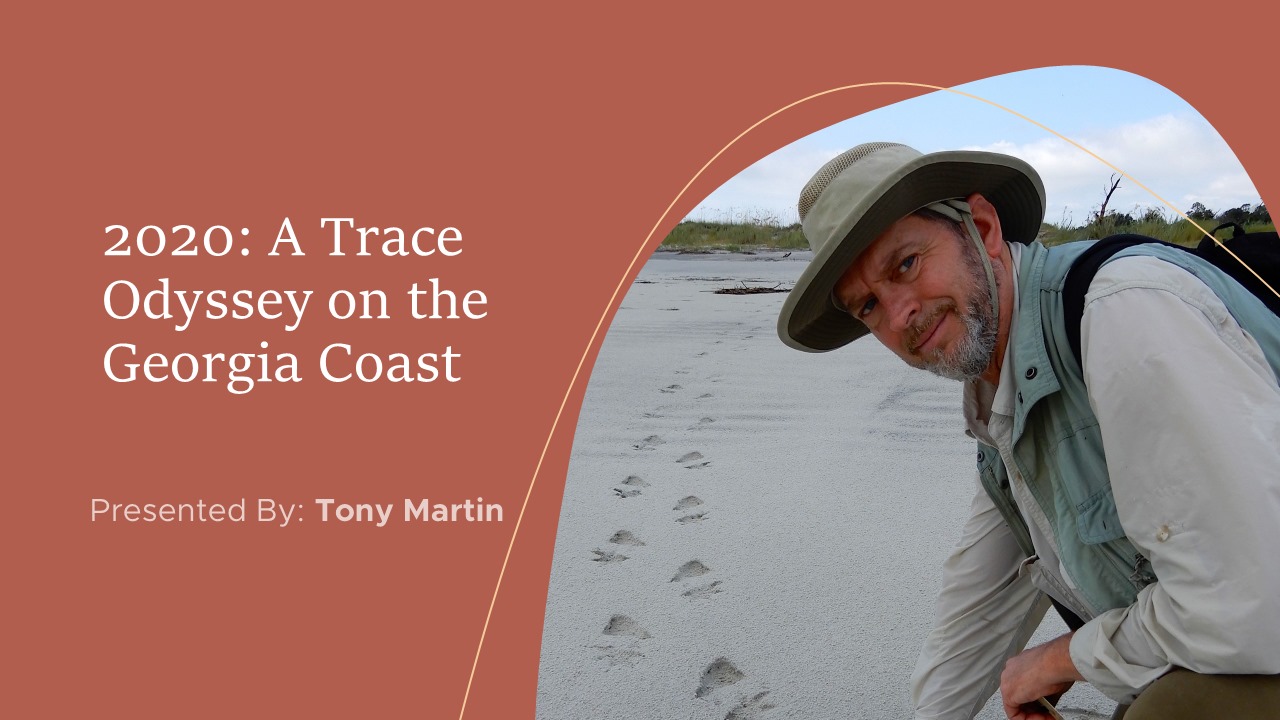
- This event has passed.
2020: A Trace Odyssey on the Georgia Coast
November 21, 2020 @ 2:00 pm - 3:30 pm

Presented by: Dr. Anthony (Tony) Martin
The Georgia coast and its barrier islands are world-famous for both their natural and human histories, from the Pleistocene Epoch to the present. Still, these histories aren’t always obvious to casual visitors on the coast. In this lively and visually compelling presentation, Anthony (Tony) Martin will tell us how to detect the clues to these histories via the study of plant and animal traces on the Georgia coast. For instance, how did trace fossils enable geologists to discover the remains of ancient barrier islands on the coastal plain of Georgia? How do traces show that Georgia barrier island ecosystems, such as maritime forests, salt marshes, dunes, and beaches, are the products of plant and animal behaviors? What about human traces on the Georgia coast, such as Native American shell rings on Sapelo Island, ballast islands from slave ships, and the effects of invasive species? And what about the ultimate human trace, climate change: what are its anticipated effects on the coast, and how can plant and animal traces help us predict what will happen? Please join us and learn the answers to these questions and more about our fabulous Georgia coast.
About the Speaker:
Anthony (Tony) Martin is a Professor of Practice in the Department of Environmental Sciences at Emory University, where he has taught a variety of classes in geology, paleontology, and environmental sciences for 30 years. He has a Ph.D. in Geology from the University of Georgia, and his research specialty is ichnology, the study of modern and ancient traces caused by animal behavior, such as tracks, trails, burrows, and nests. He has published more than 150 research articles and abstracts on a variety of modern and fossil traces and is the author of eight books, including Life Traces of the Georgia Coast, Dinosaurs Without Bones, The Evolution Underground. His latest book is Tracking the Golden Isles, published by University of Georgia Press in May 2020. In 2015, in recognition of his accomplishments in scientific exploration and public outreach, he was elected as a Fellow in The Explorers Club and a Fellow in the Geological Society of America. He, his wife Ruth Schowalter, and their two rambunctious cats (Tao and Sapelo) live in Decatur, Georgia.
DETAILS
– This virtual meetup is a production of Science for Georgia.
– You can join this event by clicking on the following link around the time the meetup is scheduled to begin: http://bit.ly/2020Trace
– Be advised, Google Chrome and Microsoft Edge are the preferred browsers for this event. Other browsers, such as Safari, may not work at all.
How to join the online event in Teams:
On the day of the event, follow the Microsoft Teams meeting link. You can choose to join on the web (Use Chrome, Edge, or Firefox) or via the Teams app. You can enter your name to join as a guest if you don’t have a Teams account (someone will let you in from the lobby soon).
For more information about Teams see: https://support.microsoft.com/en-us/office/join-a-teams-meeting-078e9868-f1aa-4414-8bb9-ee88e9236ee4
